- News
- Reviews
- Bikes
- Accessories
- Accessories - misc
- Computer mounts
- Bags
- Bar ends
- Bike bags & cases
- Bottle cages
- Bottles
- Cameras
- Car racks
- Child seats
- Computers
- Glasses
- GPS units
- Helmets
- Lights - front
- Lights - rear
- Lights - sets
- Locks
- Mirrors
- Mudguards
- Racks
- Pumps & CO2 inflators
- Puncture kits
- Reflectives
- Smart watches
- Stands and racks
- Trailers
- Clothing
- Components
- Bar tape & grips
- Bottom brackets
- Brake & gear cables
- Brake & STI levers
- Brake pads & spares
- Brakes
- Cassettes & freewheels
- Chains
- Chainsets & chainrings
- Derailleurs - front
- Derailleurs - rear
- Forks
- Gear levers & shifters
- Groupsets
- Handlebars & extensions
- Headsets
- Hubs
- Inner tubes
- Pedals
- Quick releases & skewers
- Saddles
- Seatposts
- Stems
- Wheels
- Tyres
- Health, fitness and nutrition
- Tools and workshop
- Miscellaneous
- Tubeless valves
- Buyers Guides
- Features
- Forum
- Recommends
- Podcast
review
£450.00
VERDICT:
Super-lightweight and comfortable, but so pricey
Weight:
340g
Contact:
At road.cc every product is thoroughly tested for as long as it takes to get a proper insight into how well it works. Our reviewers are experienced cyclists that we trust to be objective. While we strive to ensure that opinions expressed are backed up by facts, reviews are by their nature an informed opinion, not a definitive verdict. We don't intentionally try to break anything (except locks) but we do try to look for weak points in any design. The overall score is not just an average of the other scores: it reflects both a product's function and value – with value determined by how a product compares with items of similar spec, quality, and price.
What the road.cc scores meanGood scores are more common than bad, because fortunately good products are more common than bad.
- Exceptional
- Excellent
- Very Good
- Good
- Quite good
- Average
- Not so good
- Poor
- Bad
- Appalling
The new Specialized S-Works Exos are the lightest and most comfortable road cycling shoes I've ever tested, but they're prohibitively expensive and won't suit sprinters and people who like a very secure fit. For everyone else, the comfort is supreme and their most appealing aspect.
- Pros: Very light, comfortable, great fit, plenty of stiffness
- Cons: Price, not as supportive as regular race shoes
If you pursue something to the absolute extreme you're invariably going to come up against compromise somewhere. In the case of the Exos, it's the eye-watering price tag – though they're still way cheaper than the £900 Mavic Comete Ultimate shoes... But make no mistake, £450 is a lot of cash.
> Find your nearest dealer here
You're paying for a shoe that weighs very little. How light are we talking? Only the lightest shoes we've ever seen here at road.cc.
The size 45s weigh 340g for the pair. For comparison, the next lightest pairs we've tested are Giro's Prolight Techlace (384g) and Lake's CX301 (408g). Those Mavic Comete Ultimate shoes are 632g, and Specialized's own S-Works 7 shoes are 448g. So yes, the Exos are very light. If they're still too heavy for you, the Exos 99 shoes swap the Boa dial for laces for a claimed 198g for a size 42 pair.
What makes them so light?
It's all down to the upper, which has been constructed from the same Dyneema Mesh as used in the S-Works 7 shoes but in its raw form, without the outer layer, so it's even lighter. Dyneema is claimed to be "the world's strongest fibre" and was apparently developed originally for NASA parachutes.
As well as being strong, it's also non-stretch and very light, and it's that lack of stretch that has allowed Specialized to construct a shoe with minimal reinforcing, instead of relying on the properties of Dyneema to keep your feet planted in the shoe.
This Dyneema is complemented by a softer more flexible material over the front of the shoe and around the heel to ensure good fit and comfort. The volume and fit of the shoe are the same as the S-Works 7s.
No lack of stiffness…
Underneath is a full carbon fibre sole with titanium cleat hardware, a removable heel pad and a sliver of rubber at the front to protect the carbon sole. Pressure mapping has been used to allow Specialized to remove as much carbon fibre as possible while maintaining the desired stiffness levels.
Talking of stiffness, they come with the company's own stiffness index rating of 13, compared to the 15 of the S-Works 7. If you're an absolute powerhouse and want maximum power transfer they might not be the best choice, but for most people it's probably going to be sufficient.
What is this stiffness index and how are the numbers arrived at? Specialized tells us the number is the result of applying a 40kg load to the carbon sole and measuring the deflection. Stiffness index 13 means that there's between 1.32 and 2.11mm of deflection under this 40kg load. For comparison, the S-Works 7s have a stiffness index of 15 because they have just 0-0.61mm of deflection. The stiffness of the new Exos is also the same as the old S-Works 6 shoes.
The Exos use a single BOA IP1 dial for closure. It's a slim plastic dial with dual-release and it works well to pull the single cord evenly across the top of the foot. It's not as pleasing to operate as the posh CNC machined dials on the S-Works 7 shoes, but it gets the job done. The dial is mounted on a slim padded tongue which helps to spread pressure.
At the rear is a soft pliable heel cup with a small pull tab at the top to help with getting the shoes on and off; the S-Works 7 shoes have a very rigid plastic heel cup in comparison.
Performance, fit and comfort
They are very light on the scales, and in comparison to other shoes when you pick them up, and when you get on the bike. You might not think shoe weight makes any difference when you're clipped in, but go from a heavy shoe to a welterweight like the Exos and you can sure feel it.
But does it benefit performance? Harder to say. I 'felt' faster wearing these shoes when I was heading up hills, but it could purely be psychological, though a load of Strava PRs seems to support the notion that it was more than a feeling. But any performance gain is going to be marginal at best. If you've tapped every other marginal gain maybe shoe weight is the final step?
There's more on offer from these shoes than just appeasing the weight weenies. They are excellent in high temperatures. We've had a few decent spells of hot weather (if my tan lines are anything to go by!) and on those sweaty rides, these shoes are a lot airier than any others I've tested.
The downside of the wafer-thin construction is that they don't provide much protection or insulation in colder and damper conditions. Your feet will get colder and wetter sooner wearing these shoes, but then they are not designed as an everyday all-round shoe like the S-Works 7 or Torch models. Swings and roundabouts, you can't have it all.
Pulling them on to your feet is different and a little tricky. You do need to make use of the heel tab to pull the shoe around your foot because the softer material will collapse if you don't line up your feet perfectly. It's like pulling on a skin suit – a bit more time is needed. The Boa dial works easily enough and tensions the single cord across the padded tongue.
Despite so much focus on low weight, there is still adequate stiffness for impressive power transfer when you get on the bike and give it a boot full of watts down the road. The carbon sole might not have the same stiffness rating as the S-Works 7s on which they're loosely based, but for all my stomping in the pedals I didn't feel any flex or lack of power transfer at all.
The fit is excellent, with a similarity to the S-Works 7 shoes, which should come as no surprise. Now, if you watched my first look video you'll know that the upper is very soft and deformable. Nearly all road cycling shoes use mostly rigid materials for the upper for support, but the white material over the front of the toes is soft and pliable.
It might look odd in the pictures and in your hands, but when you're pedalling, it provides unparalleled comfort. Your toes are free to wiggle and wriggle around with unprecedented freedom. It's actually one of my favourite features of these shoes, and I've been wearing them for very long rides because they are just so damn comfortable. They're like slippers. They just feel like a natural extension of your feet. So, so comfortable.
The downside to the Exos is that the upper doesn't secure your foot in place as well as other road shoes, including the S-Works 7s. It's not that your feet move around undesirably, just that the single Boa dial and the single cord have a big job to keep your feet pressed against the carbon sole during very serious pedalling, so you do need to clamp down the dial a lot. Thankfully, the tongue is padded and there's no discomfort as a result, but it's in stark contrast to the S-Works 7s which can have their twin Boa dials left reasonably loose and still have a firm fit.
I didn't experience any issues with heel lift. Even though the heel is made from a much more flexible material than most regular performance shoes, it easily prevented heel lift during hard hill efforts and sprints.
All of that puts the Exos shoes in a tricky place. They wouldn't be my first choice for road racing or very demanding/fussy riders, but a hilly course, mountain climb or long distance rides where squeezing out every last watt isn't so high on the list of priorities, yes the Exos can cut it.
How about durability?
They're not designed to be as robust as regular road shoes – that lightweight upper is built to be light, not rugged – but despite initial concerns, the shoes have shown very good durability.
I've been wearing the hell out of them, using them every day to try to find fault, a weakness, something to suggest they're too fragile for everyday use. Because, if you're going to drop £450 on a pair of shoes, it's not unreasonable to want to wear them all the time, right?
But none has surfaced so far. My testing even started in the middle of winter where lots of wet, cold and gritty rides ensured they got a soaking on a regular basis. And then into spring where the high-temperature benefits of the design became apparent. And through it all, the shoes have been just marvellous.
The soft upper, which might look and feel fragile, hasn't ripped or torn, and apart from a few scrapes there's no damage to speak of. There are the usual scratches you get on a carbon sole (blame that on walking across gravel) but nothing untoward.
So yes, you can wear and enjoy these shoes every day. Maybe put them away for the winter months, though.
Conclusion
As impressive as the low weight is, it's the comfort of the Exos that has won me over. It's certainly easier to quantify in testing. But they won't be for everyone – more demanding cyclists will prefer a shoe that locks the foot in place aggressively.
Any concerns about durability and comfort for daily riding went out the window very early into the test period, and they've stood up to scrutiny very well.
> Buyer's Guide: 19 of the best high-performance road cycling shoes
So choose these shoes if you want the lightest and most comfortable road cycling shoes on the market right now, and don't necessarily want that clamped-into-the-shoe feeling you normally associate with road shoes. If you do a lot of riding in the hills or hot weather, these are a good pick.
But there's that massive price tag. Value for money goes out of the window when talking about a shoe that is a couple of hundred pounds more than an average road cycling shoe. This is a halo product that is the pinnacle of current technology, and for many people the S-Works 7 or Torch shoes from Specialized are probably going to be more suitable.
Verdict
Super-lightweight and comfortable, but so pricey
road.cc test report
Make and model: Specialized S-Works EXOS shoes
Size tested: 45
Tell us what the product is for
Specialized says, "At a mere 150 grams, the S-Works EXOS are the lightest cycling shoes to ever come with a Boa® dial. And not only are they ridiculously light, but they still have all the features that are synonymous with the S-Works label. They're still at that World Tour level, just ridiculously light.
"To get the weight down to the 150-gram mark without sacrificing power transfer, we implemented all the engineering bells and whistles we could think of. And when that wasn't enough, we thought up some more. The carbon outsole was developed using an advanced form of Finite Element Analysis and pressure mapping to pull out material where it wasn't needed. This allowed us to keep crazy-high stiffness numbers, too. For the uppers, we completely removed the heel counter. And with a little help from the space-grade Dyneema® mesh and some CubicTec reinforcement, the heel molds to the back of your foot, so nary a watt is wasted. Lastly, we developed a new Warp Sleeve vamp that let us get rid of the toe box, and this further cut down the weight and increased the comfort.
"Of course we couldn't do any of the above without including our coveted Body Geometry features, like the Longitudinal Arch, Varus Wedge, and Metatarsal Button. Each one of these features have been ergonomically designed and scientifically tested to not only boost power, but to also increase efficiency and to reduce the risk of injury.
"The S-Works EXOS are the lightest cycling shoes to ever have a Boa® dial - experience the feeling of lightness."
Tell us some more about the technical aspects of the product?
Specialized lists these details:
Body Geometry sole and footbed are ergonomically designed and scientifically tested to boost power, increase efficiency, and reduce the chance of injury by optimizing hip, knee, and foot alignment.
Our lightest FACT Powerline™ carbon plate maximizes power transfer: Stiffness Index 13.0
A revolutionary Dyneema® Mesh allows us to achieve weight without sacrificing hold for the ultimate connection and comfort.
BOA® IP1 dial for on-the-fly micro-adjustment, backed by the BOA® Lifetime Guarantee.
Titanium alloy cleat nuts can rotate to position pedal/cleats 5mm rearward.
Non-slip, replaceable heel tread with internally recessed screws for security.
Form Fit last with a Warp Sleeve vamp for the ultimate in connectivity, comfort, and speed.
Three-bolt cleat pattern fits all major road pedals.
Approximate weight: 140g (1/2 pair, Size 42)
Rate the product for quality of construction:
9/10
Very impressive quality of construction and attention to detail.
Rate the product for performance:
9/10
Bloomin' comfortable and very stiff for transferring your watts into forward motion.
Rate the product for durability:
8/10
They've been fine during my many months of testing, but they do need to be treated with a bit more care than regular road shoes.
Rate the product for fit:
9/10
I always find Specialized shoes to fit very well and that was the case with these Exos.
Rate the product for sizing:
10/10
Perfect.
Rate the product for weight:
10/10
Lightest shoes we've ever tested.
Rate the product for comfort:
9/10
After the impressive weight, it's the comfort that is most appealing about these new shoes.
Rate the product for value:
6/10
They're darn expensive, but then if you want the lightest, you've gotta pay for it. Still, they're cheaper than Mavic's £900 shoes and those are nowhere near as light.
How easy is the product to care for? How did it respond to being washed?
The white upper cleans up well, and over several months of testing in all weathers, they still look good.
Tell us how the product performed overall when used for its designed purpose
Deliver impressive low weight, high stiffness and good breathability in hot weather.
Tell us what you particularly liked about the product
The comfort from the soft flexible upper material around the toe box.
Tell us what you particularly disliked about the product
The hold from the single Boa dial isn't as secure as regular road shoes, so for power pedalling you do need to clamp the dial down tight.
How does the price compare to that of similar products in the market, including ones recently tested on road.cc?
They're £100 more than the next lightest shoes we've tested, Giro's Prolight Techlace, but half the price of the £900 Mavic Comete Ultimates.
Did you enjoy using the product? Yes
Would you consider buying the product? I'd need a pay rise first.
Would you recommend the product to a friend? Yes
Use this box to explain your overall score
Huge price but huge performance with insane low weight and incredible comfort.
About the tester
Age: 31
I usually ride: My best bike is:
I've been riding for: 10-20 years I ride: Every day I would class myself as: Expert
I regularly do the following types of riding: road racing, time trialling, cyclo-cross, commuting, touring, mountain biking
David worked on the road.cc tech team from 2012-2020. Previously he was editor of Bikemagic.com and before that staff writer at RCUK. He's a seasoned cyclist of all disciplines, from road to mountain biking, touring to cyclo-cross, he only wishes he had time to ride them all. He's mildly competitive, though he'll never admit it, and is a frequent road racer but is too lazy to do really well. He currently resides in the Cotswolds, and you can now find him over on his own YouTube channel David Arthur - Just Ride Bikes.




















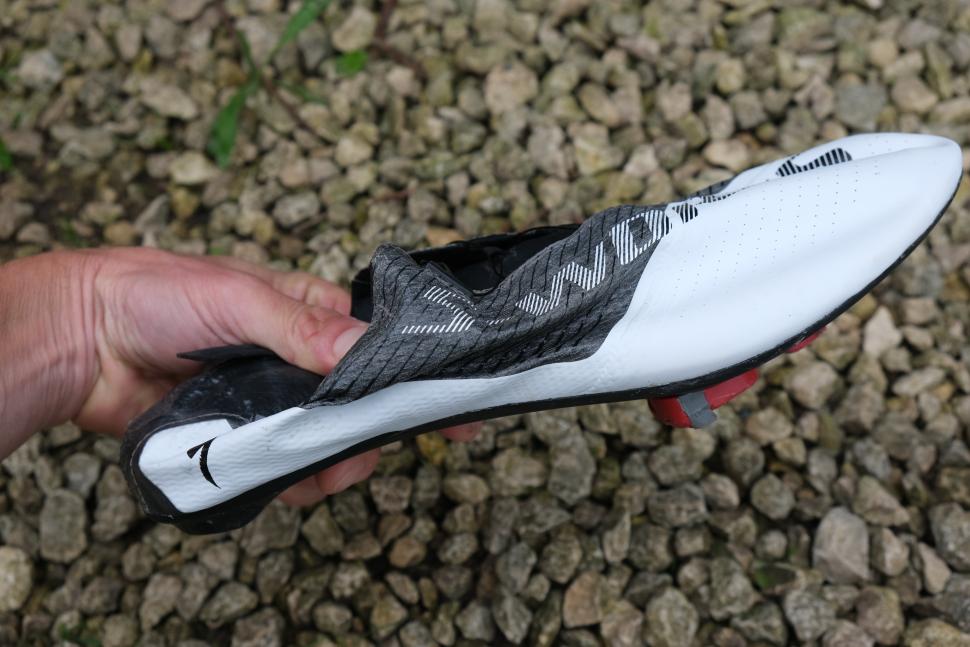
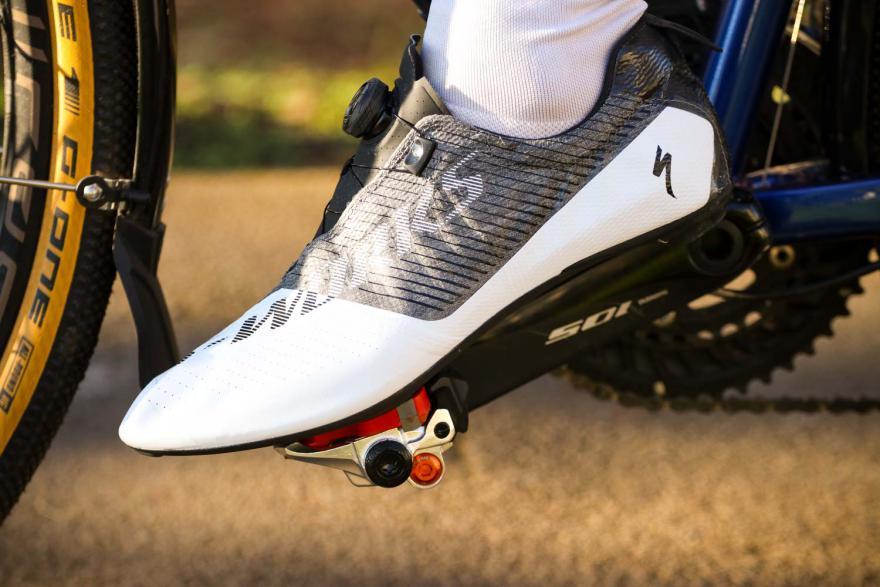
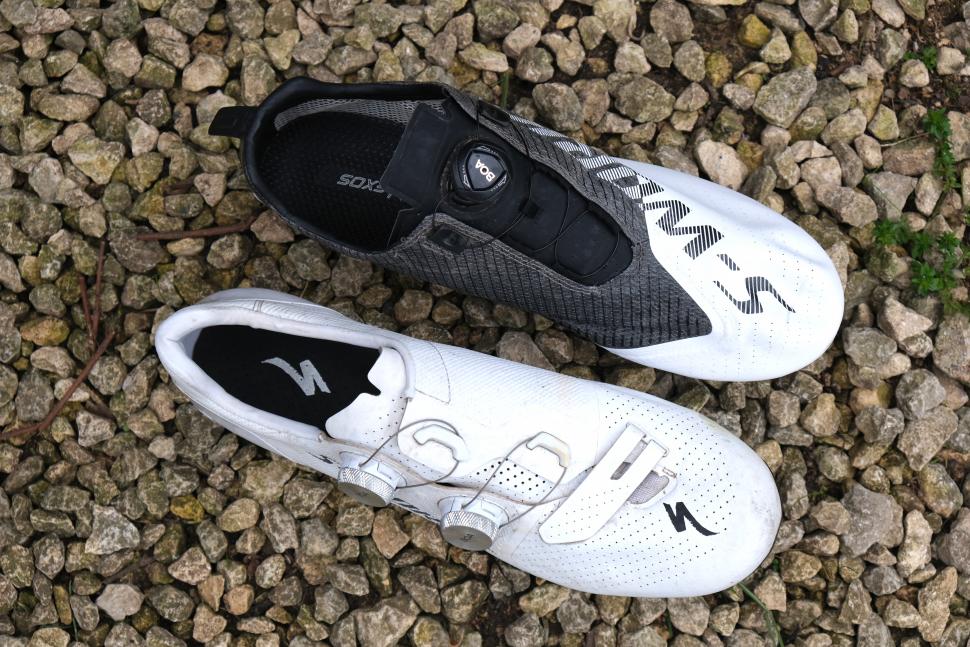
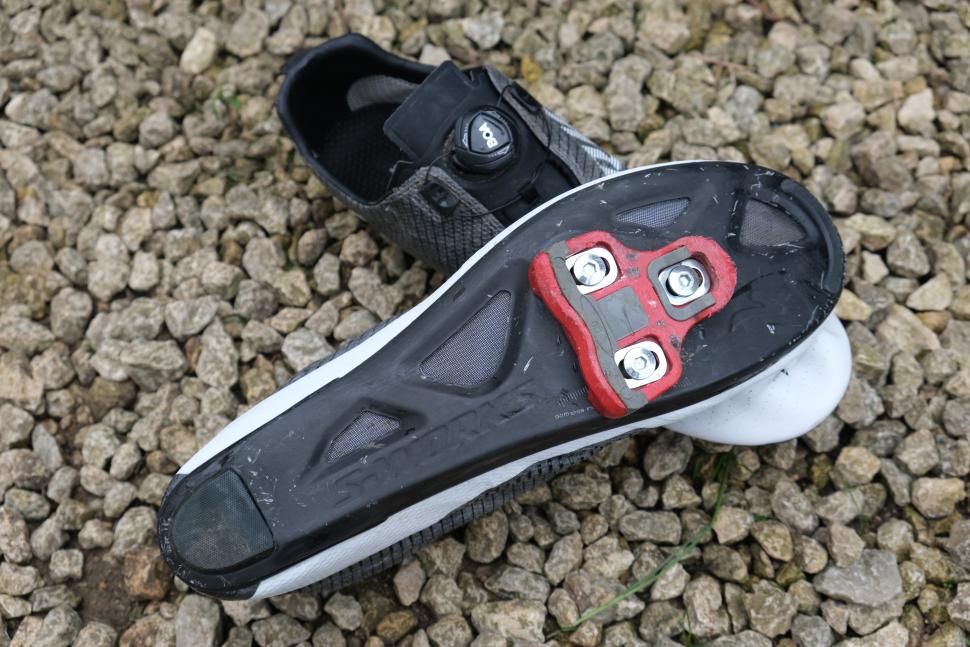
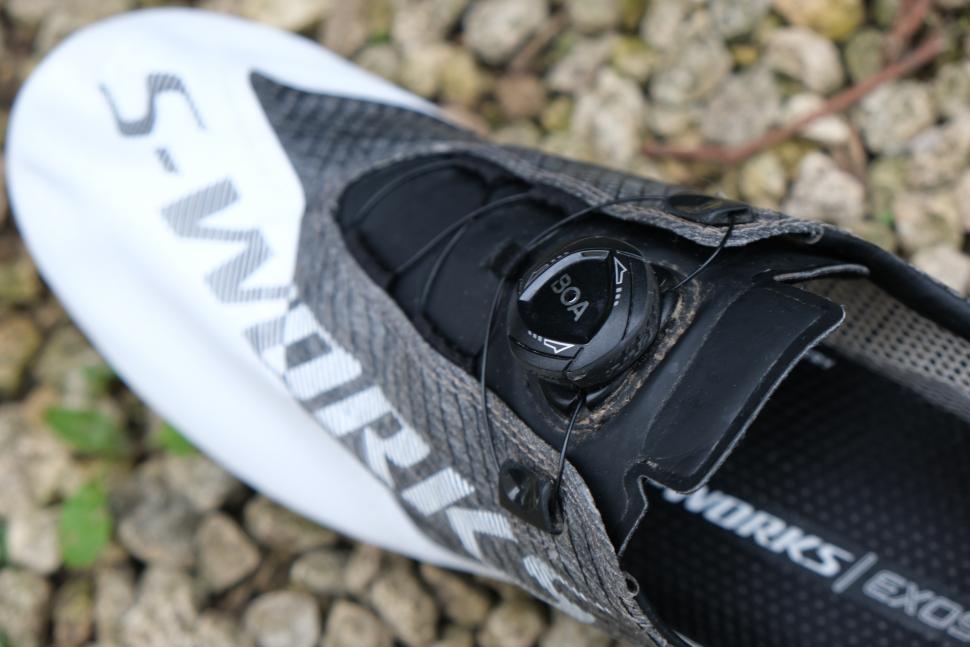
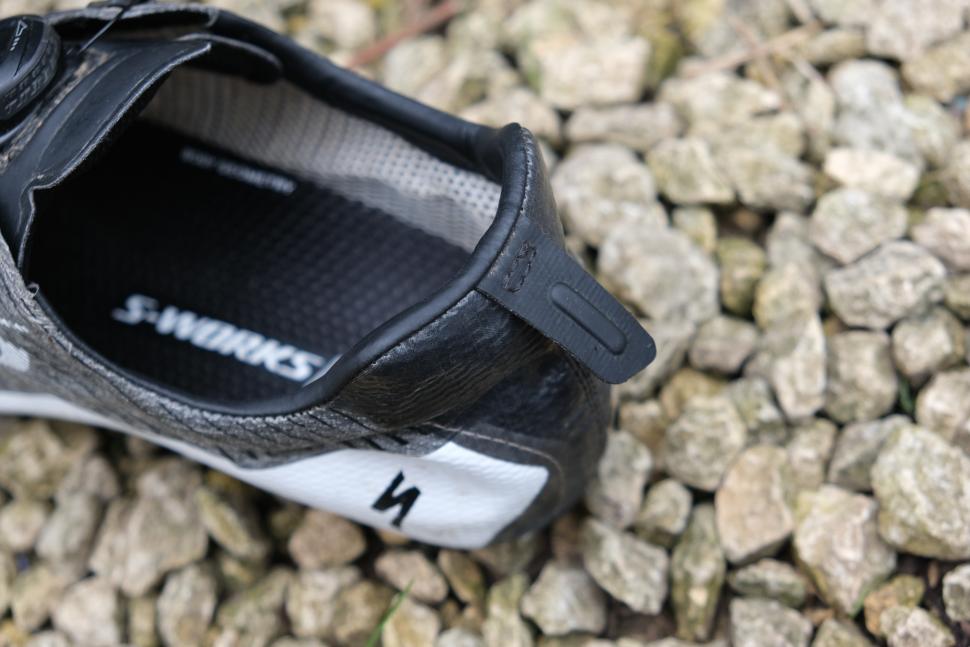
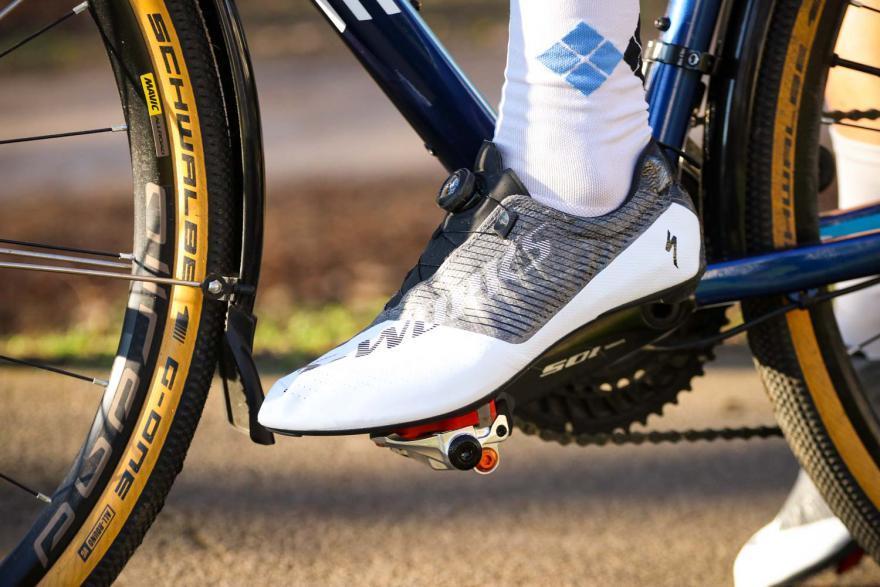
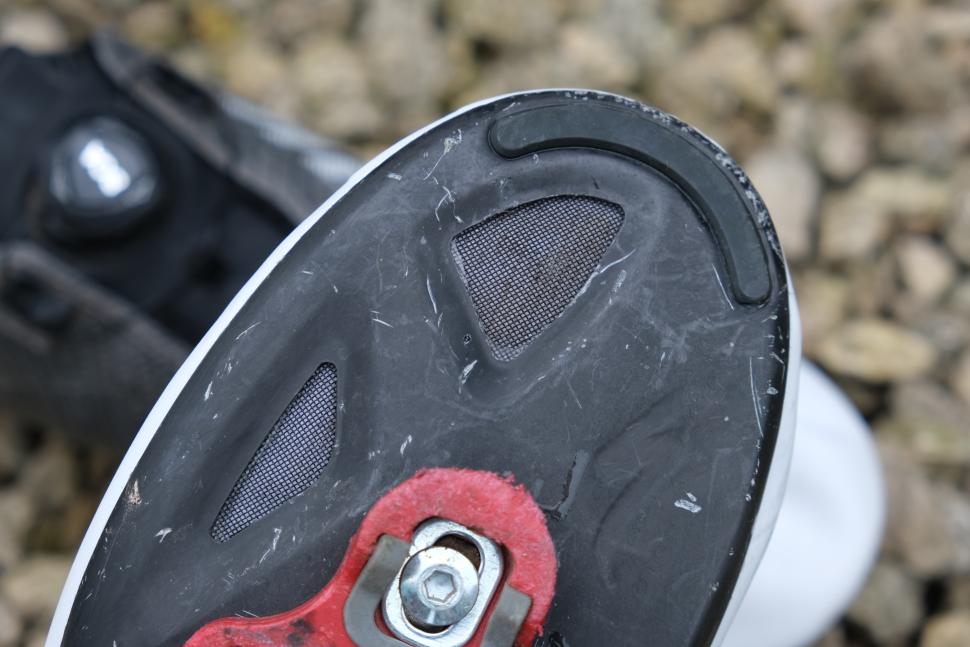
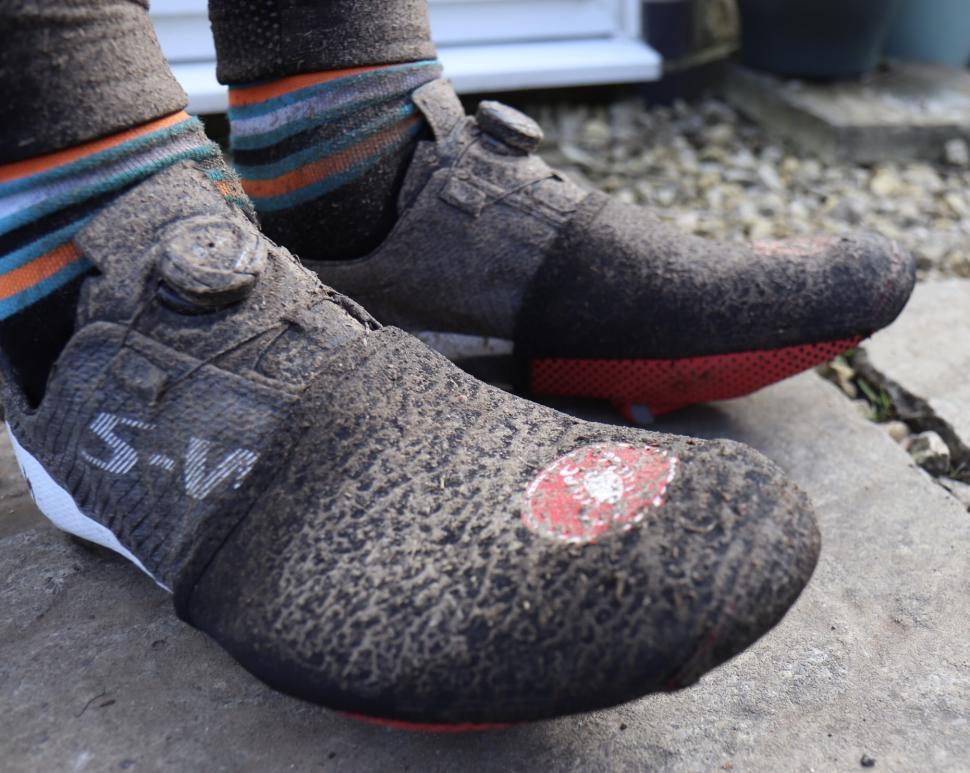
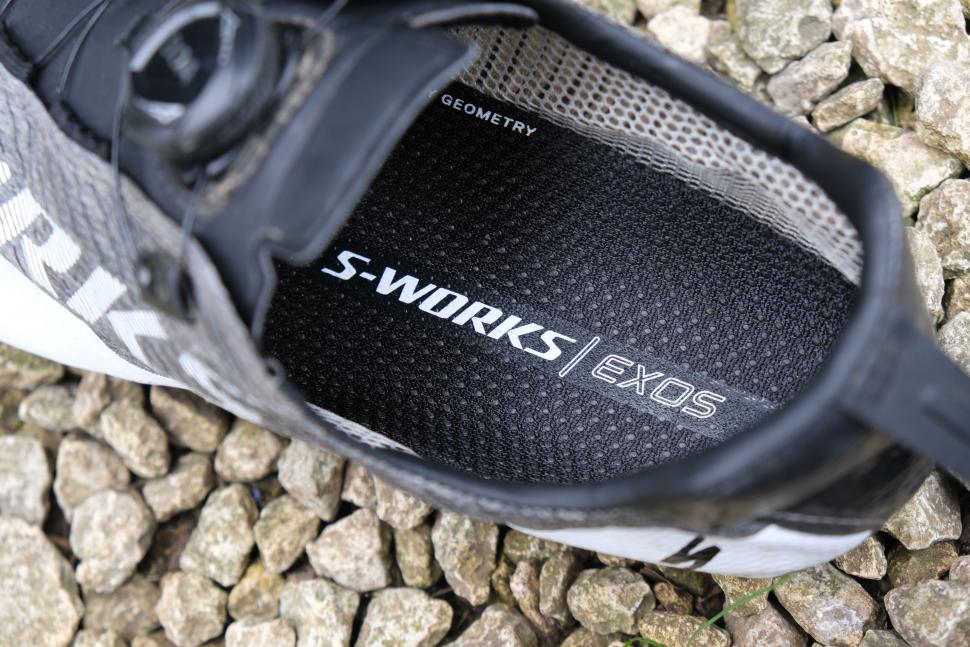
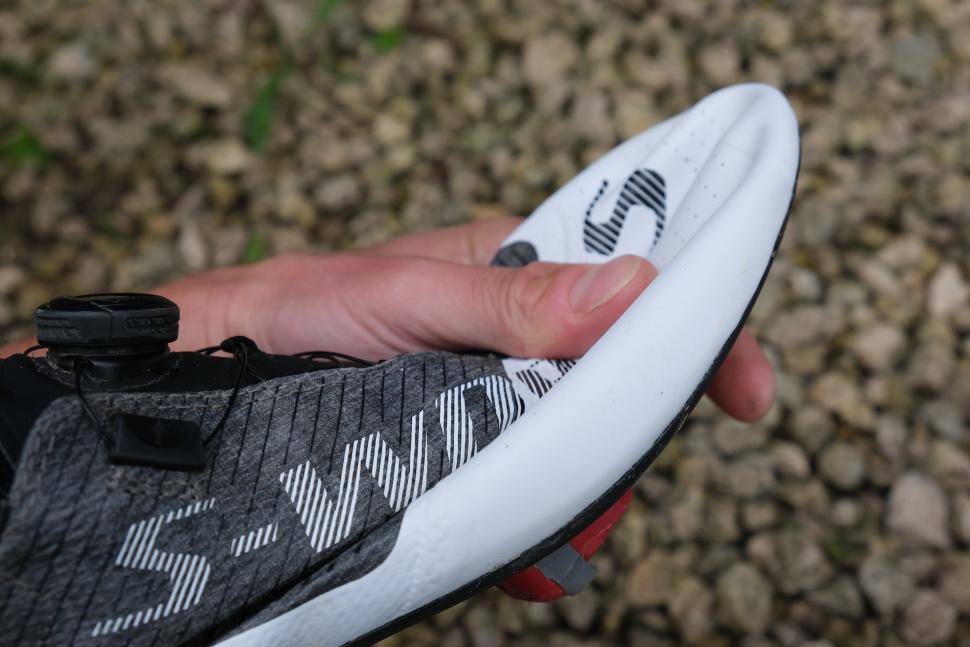
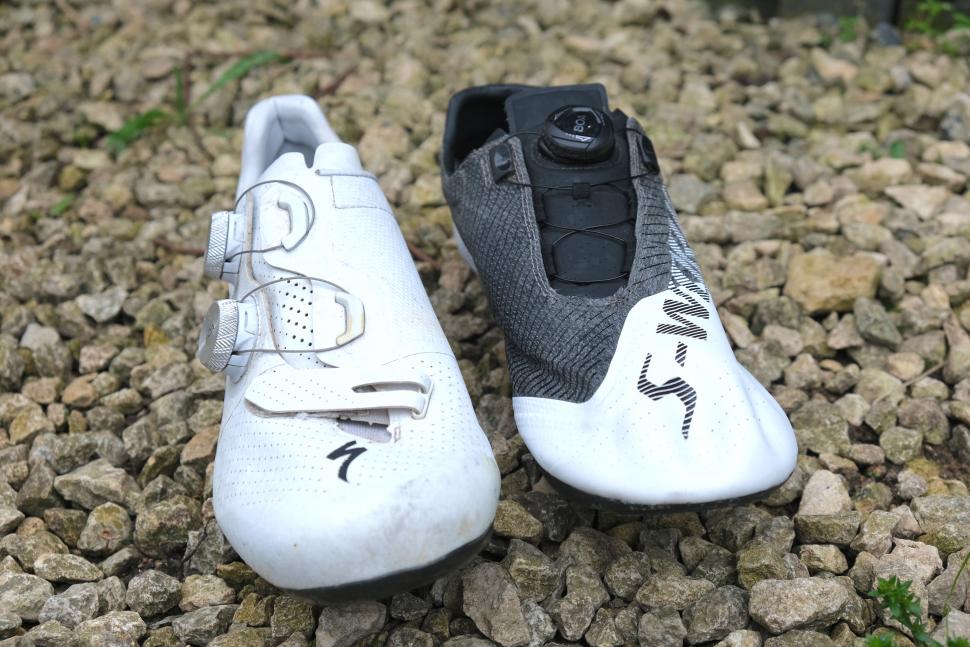
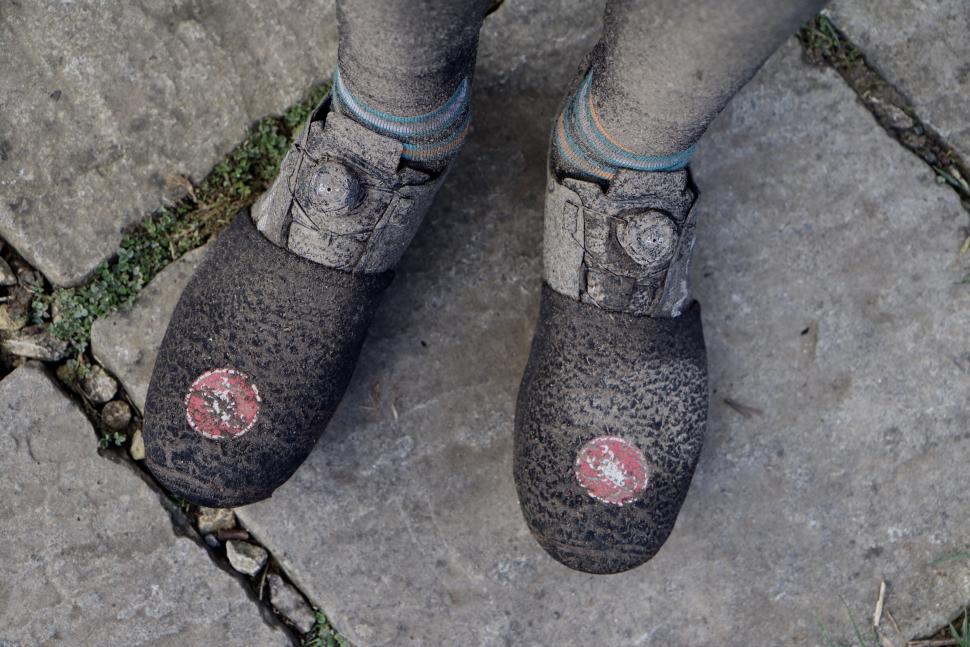
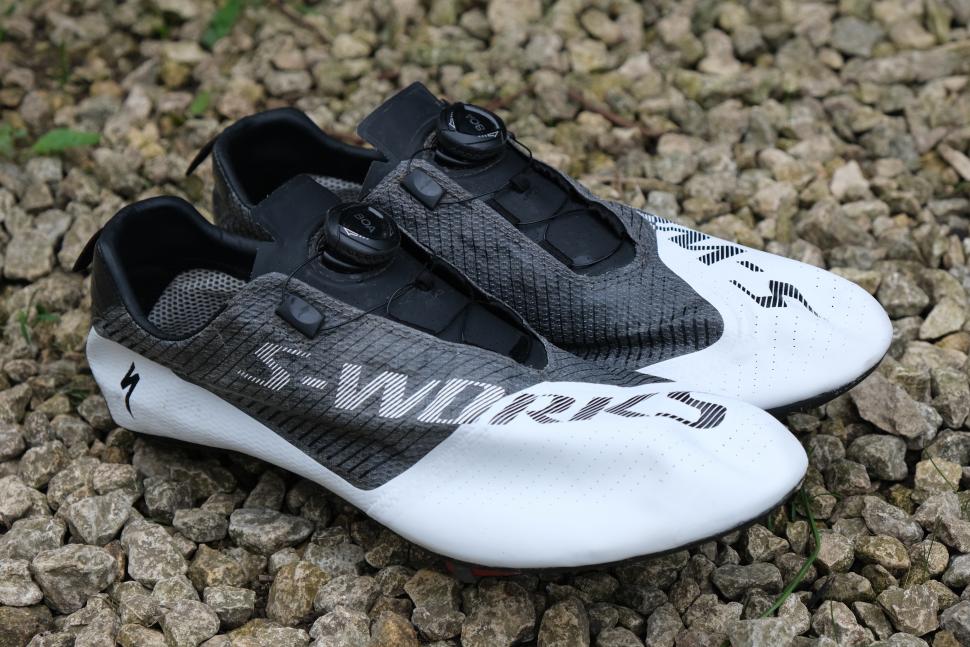
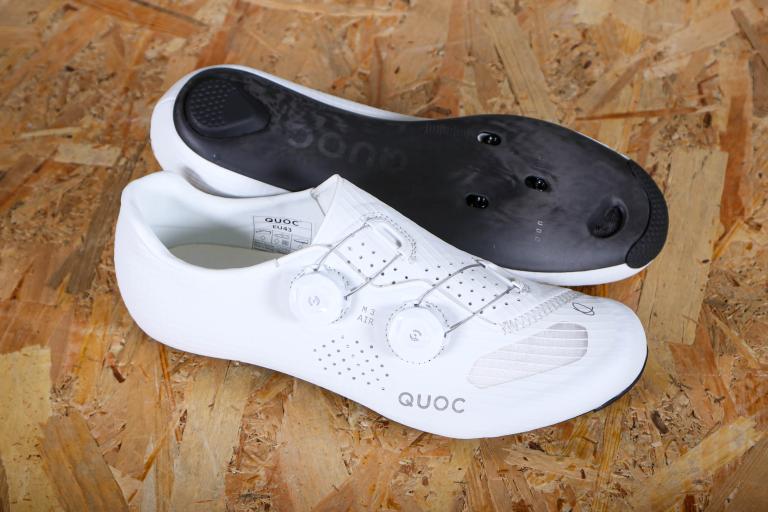
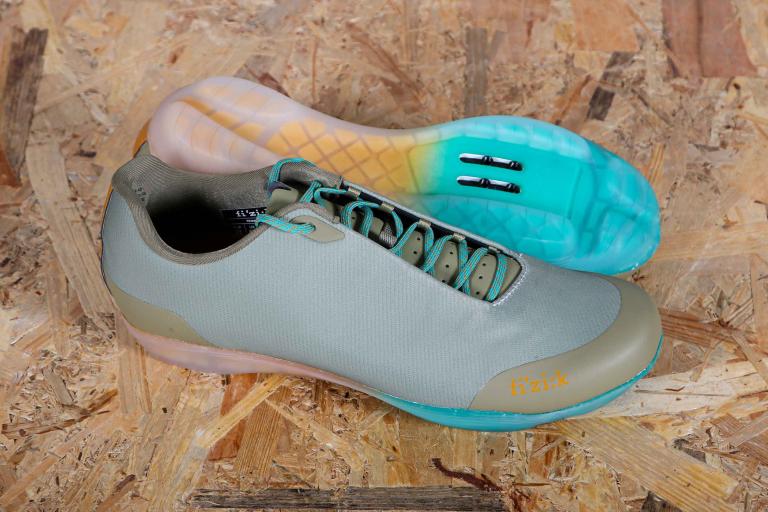
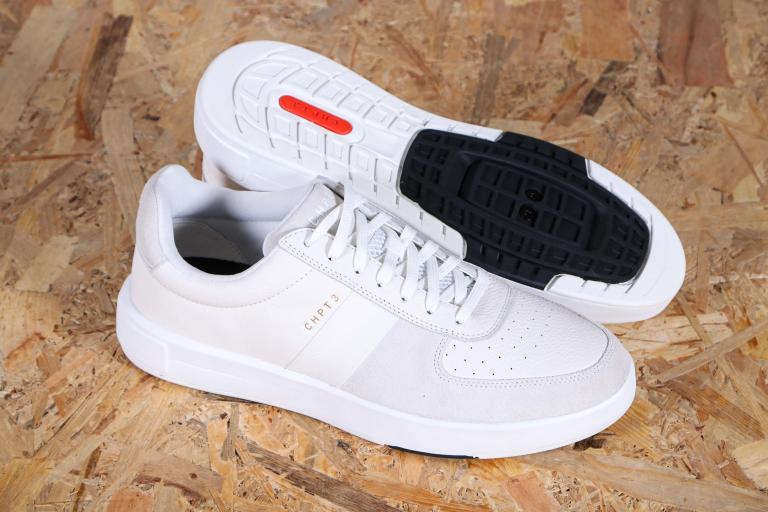
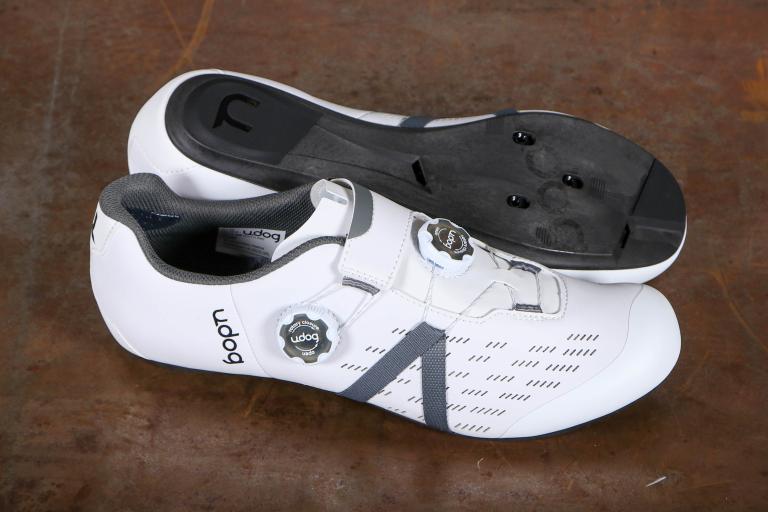
Thank goodness for that. I don't suppose anyone would want you to. You certainly behave like one though.
You do see some utterly ridiculous examples of car use....
Exactly. Every road death is a tragedy but this is at the "twat deserved it" end of the spectrum, looking at the state of that car.
I'm not the editor of this article, nor indeed of anything on this website. One would have thought that didn't require explaining.
I think the answer is in your question. I genuinely didn't know he was married to her. It does kinda explain it. Disappointing, nevertheless.
What do we want?...
In a perfect world, we'd have a measure of how easily distracted someone is, as part of their driving test....
These products are nothing but ridiculously expensive and superfluous, and they bring nothing but bragging rights....
Of course they are, and not so different. https://www.amazon.co.uk/dp/B09B662CDN?crid=34M42BETAMFT0&th=1 The bugger's got four versions up now!
At least the van driver was nowhere near the stationary cyclist.